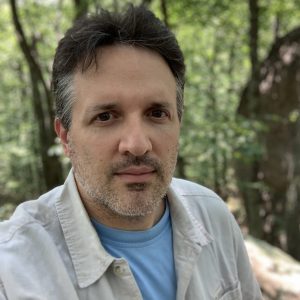By Barbara Bowen, NRCS
“When milk prices tanked, nobody saw it coming. Instead of using the money to better the farm, we are now using it to buy the farm.”
That simple statement from Rockbridge County dairy owner Linda Leech summarizes the positive impact conservation easements can have on farm families. Offered through a partnership between the Natural Resources Conservation Service (NRCS) and the Virginia Outdoors Foundation (VOF), this practice offers dual benefits as producers receive financial compensation to keep their agricultural land in the family and protect it from development.
Linda and her husband, Charles, are continuing a farming legacy that stretches back generations. Along with their children, Beau and Jennifer, the Leeches proudly own and operate Ingleside Land LLC in an idyllic mountain setting just outside the City of Lexington.
Farming in the area has diminished from about 28 dairies in Charles’ grandfather’s time to about seven today. VOF easement manager Laura Thurman says much of the available land is being sold at higher than appraised value for housing subdivisions, and it is difficult for individuals who don’t own the land to begin farming. Those who return to the area find the land prices in Rockbridge County prohibitive for agricultural production.
The Leeches are full-time producers who earn no significant income outside of the farm. The family previously rented pasture and crop land from David Tardy’s Buffalo Farms for their growing dairy herd, which now numbers at just over 300 cows and about 310 replacement heifers. At that time, they simply did not have enough acreage to raise the amount of feed needed for their herd or to provide adequate pastureland for them.
Ingleside Dairy Farm, Inc., encompassed about 650 acres when the Leeches purchased 168 acres from Buffalo Farms in July 2007. (About 95 acres of the new purchase are currently in crops, and the remainder is used as pastureland.) The Tardy’s are long-time family friends and Charles knew of David Tardy’s desire that his land remain in agricultural production.
“If we had been the type of people to buy a farm and see how many bucks we could get from it, we would’ve never gotten this land,” says Charles. “If we had been that type of people, we would have never known it was for sale,” adds Beau.
Thurman says the Leeches bought the land when real estate was going for a higher price and reached out to her about protecting the land when the “bottom fell out.” “Farmers are very adept at cost benefit analysis, and this purchase makes more sense for them,” she adds.
Thurman worked with NRCS to enroll the Leeches in the Farm and Ranch Lands Protection Program (FRPP) to protect just over 166 acres from development and to help the family keep their farm. She says the easement proposal came together quickly, with funding approval coming through the VOF board in 2009. To purchase the development rights, NRCS provided 50 percent of the funding through FRPP, VOF provided 25 percent through its Preservation Trust Fund, and the remaining 25 percent was donated by the family to the Commonwealth, for which they will receive state and federal tax benefits.
VOF, which holds more than 3,000 easements across 600,000 acres of land, will be responsible for stewardship of the property as this highly productive farmland goes into perpetual easement (more than 80 percent of the soils are prime or of statewide importance). Historic dwellings dating back to the 1800s are also located on the easement land, which fronts a native trout stream on Buffalo Creek.
All four members of the Leech family hold B.S. degrees in dairy science from Virginia Tech and made a joint decision to protect their land and way of life. NRCS FRPP Manager Barry Harris says that getting the children involved in the easement decision has helped to ensure the farm’s viability for years to come. Beau summarizes their family’s commitment to the dairy business in the simple statement, “That’s what we do.”
Charles and Linda say they created the LLC to give their children a vested interest in the business. Beau and Jennifer, who each own a 25 percent share of Ingleside Land LLC, are already dividing and conquering the business of helping to run the dairy and managing the three full-time and two part-time employees. Jennifer does the books (both financial and herd) and much of the milking and heifer care, while Beau focuses more on crop work, feeding, and equipment.
Harris adds that operations stay afloat these days by “not doing things the same way” and benefiting from available technical advice on conservation practices, such as no till and nutrient management. NRCS Lexington District Conservationist Charlie Ivins adds that the Leech children are in a unique position because their father is using cutting edge technology on the farm. Thurman echoes that sentiment, stating that Ingleside is “one of the cleanest, neatest dairies I’ve ever seen and employs a number of best management practices.”
The Leeches don’t see a strong down side to conservation easements and would recommend the practice to other farmers. Charles says the construction restrictions on the site wouldn’t really affect them because “we have enough buildings on the property already. If something happened to one of our buildings, we could just put up another one in its place.”
“You have to think about future generations,” says Linda. “Will they be glad the easement is in place? If so, why not get some monetary benefit from it?”
This article originally appeared in the July 2010 issue of Current Developments, published by Virginia NRCS.
